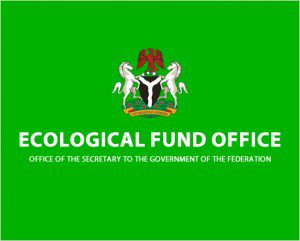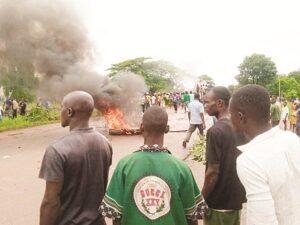


Doubts over ecological fund’s effectiveness as environmental crises persist across Nigeria
By Esther Agbo
The ongoing environmental crises across Nigeria have sparked renewed debate about the efficacy and transparency of the nation’s ecological fund. Over the past year, Nigeria’s 36 states received a total of N39.62 billion from this fund, intended to combat severe ecological challenges ranging from flooding to desertification.
However, concerns are mounting over whether these funds are being used effectively. The disbursement of the ecological fund, drawn from two per cent of the Federation Account, is meant to aid all tiers of government in tackling environmental issues. Yet, as the funds flow to states, the environmental challenges seem to persist, raising questions about the management and impact of these allocations.
Recent reports from the National Bureau of Statistics indicate that states like Kano and Borno received the highest allocations due to their pronounced environmental challenges. Kano, dealing with heavy rainfall and the subsequent damage to the Kano-Maiduguri highway, received N2.1 billion averaging N175m per month, while Borno, battling the compounded effects of insurgency-related damage, was allocated N1.68 billion, averaging N140m per month), the second-highest allocation. Despite these substantial allocations, environmental damage and infrastructural failures continue to plague these states, casting doubt on the effectiveness of the fund’s distribution.
The situation in Borno is particularly dire. A United Nations report highlighted the extensive damage caused by severe weather incidents between April and July 2024, affecting over 124,000 individuals in the region. It should be noted, however, the state government has empowered 120 women farmers from the north-east region with N500,000 each, and 100 persons with disabilities from Borno with N100,000 each, to support their agricultural endeavours.
The Federal Government has ended the contract for Section 1 of the Kano-Maiduguri road project due to extended delays. This announcement was made by the Minister of Works, Senator David Umahi, through his Special Adviser (Media), Uchenna Orji, on Saturday. The minister has also called for an immediate evaluation of the road project.
According to a report from the United Nations Office for the Coordination of Humanitarian Affairs titled ‘Nigeria BAY States, Shelter/NFI Sector Flood Situation Update, April – July 2024 (Issue 1.0)’, severe weather events from April to July 2024 impacted 124,275 people across 56 internally displaced persons sites in Borno, Adamawa, and Yobe states.
An advocate with the Centre for Fiscal Transparency and Accountability, Victor Agi, voiced concerns about the lack of transparency in the management of these funds. He suggested that the Federal Government might need to take a more direct role in overseeing the fund to ensure it is used effectively, rather than leaving it in the hands of state governors.
“We don’t even get to know how the funds are used, what is the use of the ecological fund if every year we keep on having flooding?” he asked.
Echoing these sentiments, environmental economist Tobi Awolope argued that the ecological fund’s impact is undermined by mismanagement and a failure to target the right populations. According to Awolope, the persistent environmental problems despite significant financial allocations indicate a need for better oversight and a more strategic approach to fund distribution.
“The government has been intervening, but the right people and target population are not being adequately reached. This is why the situation in the country has not improved,” Tobi said.



